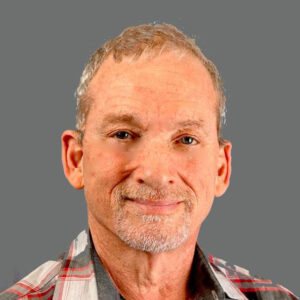 Mike Herman’s journey as a cancer survivor is a testament to resilience, advocacy, and the importance of a comprehensive approach to patient care. His story sheds light on the medical, economic, and personal challenges faced by cancer patients and underscores the critical role of support systems and research in overcoming these challenges.
Mike Herman’s journey as a cancer survivor is a testament to resilience, advocacy, and the importance of a comprehensive approach to patient care. His story sheds light on the medical, economic, and personal challenges faced by cancer patients and underscores the critical role of support systems and research in overcoming these challenges.
Can you share the background of your journey as a cancer survivor?
I began experiencing health issues while we were under a Health Maintenance Organization (HMO). In the fall of 2012, I started breaking ribs just by bending over. Multiple tests were conducted, leading to a diagnosis of Multiple Myeloma. After switching to traditional Blue Cross Blue Shield insurance, I received treatment from Dr. Bart Barlogie at the University of Arkansas for Medical Sciences. Later, Dr. Barlogie introduced me to Dr. Saad Usmani, and together with other oncologists, we decided on a bi-specific antibody trial with Janssen Pharmaceutical’s Teclistamab, which yielded remarkable results. Despite setbacks, including the termination of my employment, my cancer has been undetectable for extended periods.
Thinking about your lived experience, what are examples of economic impacts that you experienced?
During the treatment, we incurred significant direct medical costs, as we had to rent an apartment for nine months. My income was reduced, and we still had two mortgages to pay. Fortunately, my older brother and new health insurance helped offset these costs. Non-clinical healthcare expenses, such as apartment rent and food, were quite high. The most surprising impact was on my job, despite my contributions, my employer showed no concern for my disability and ultimately let me go when my Family and Medical Leave Act (FMLA) ended.
How does your diagnosis affect you from a social, educational, career growth, and mental health perspective?
During my nine-month stay in Arkansas, I had amazing social support from friends and family. Although I had to pause my master’s degree, I eventually completed it with a high GPA. My former employer’s lack of support pushed me towards advocacy and lobbying, where I discovered my true calling. Mentally, I encountered significant challenges, but ultimately, I found strength through my advocacy efforts.
Have caregivers or loved ones been impacted financially or economically by your diagnosis?
My wife, Angela, who is my primary caregiver, experienced financial strain, which led to lifestyle adjustments due to my reduced income. While my parents and older brother provided support, there were no significant financial impacts on their lives.
What does it mean when researchers want to partner with you as a whole person?
Taking a holistic approach to treating an individual involves addressing all aspects of their life, not just the illness. This comprehensive method includes mental health, physical well-being, economic considerations, and social impacts. It is crucial for patient care and can encourage patients to remain engaged in treatment.
How have you been involved as a partner in research?
Clinical trials play a crucial role in advancing medicine. However, with less than 5 percent of cancer patients taking part, progress is hampered. I actively promote clinical trials across different platforms and organizations, urging people to participate and emphasizing the significance of these trials in driving medical progress.
Involvement is easier than you think.
Starting with support groups and local advocacy organizations can lead to fulfilling experiences. Lobbying, although daunting initially, is very impactful. Organizations like Patients Rising make the process accessible, helping you effectively share your story and advocate for change.
###
Mike Herman’s journey is a powerful reminder of the importance of perseverance, advocacy, and the support of loved ones in overcoming the challenges of a cancer diagnosis.
Mike Herman is the founder of Speaking on Cancer Patient Advocacy (SoCPA). SoCPA’s mission is to educate towards a cancer free tomorrow.
Mention of specific providers or health systems is not an endorsement by IVI.